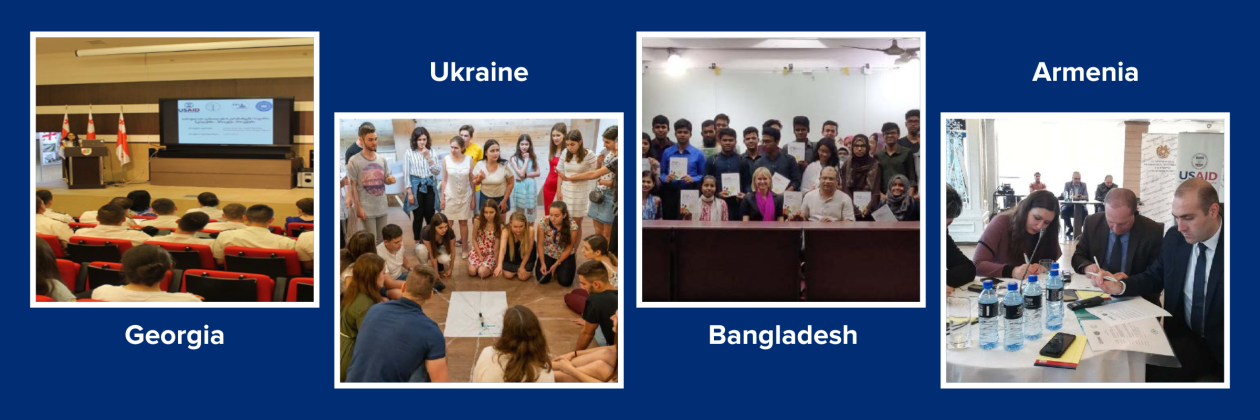
Strengthening Engagement through Education for Democracy (SEED) 2023
Overview
The International Foundation for Electoral Systems’ (IFES) civic education programming empowers citizens to participate more effectively in their country’s electoral and political processes and provides them with the tools they need to hold their elected representatives accountable for effectual governance. When citizens are not empowered to effectively exercise and defend their or others’ democratic rights and responsibilities, the opportunity for disinformation, corruption, and electoral fraud increases, thereby amplifying the potential for leaders to take undemocratic actions that threaten human rights, stability, and prosperity.
IFES’s work to support informed, mindful, and active civic participation through intersectional approaches designed to support diverse groups such as young women, ethnic and religious minority youth, and youth with disabilities expands the potential for all citizens to shape their democracies and to be represented in decision-making processes.
To this end, in 2010, IFES developed a global, university-level civic education approach: Strengthening Engagement through Education for Democracy (SEED). SEED is designed to empower young people to better understand the democratic process and each citizen’s role and responsibility within it. The SEED curriculum, materials, and methodology are country-tailored and designed to foster students’ democratic values and attitudes while equipping them with the knowledge and skills essential to effective and informed citizenship in digital age democracies, as well as closing democratic spaces. Universities have proven to facilitate safe spaces for young people to expand their understanding of democracy and foster community-building among engaged students and their networks.
Through SEED, IFES has worked with universities and education specialists in Georgia, Ukraine, Armenia, and Bangladesh to develop fully accredited university-level curricula to introduce citizens to fundamental concepts of democratic citizenship, systems of government, civic participation, and human rights while building capacity through hands-on, real-world learning experiences.
The core methodology of SEED focuses on three components:
The knowledge-based components of the course cover democratic governance, human rights, civil society, and citizen engagement. Cross-cutting themes include gender equality, elections, minority rights, inclusion of and accessibility for persons with disabilities, enfranchisement, good governance, rule of law, media literacy, digital participation, diversity, the role of money in politics, youth participation, and corruption.
To strengthen students’ skills (including, but not limited to, digital literacy, critical thinking and decision-making, active listening, consensus-building, public speaking, group work, and problem-solving), IFES’s civic education methodology emphasizes the primacy of interactive teaching methodology (contrary to a traditional lecture-style format). Course professors selected by the university receive training on interactive teaching methods through IFES-led continuous professional development sessions with national and international experts.
The capstone component of the course is a student action project to encourage leadership and service learning. Through a step-by-step, guided process, students identify an issue in their communities that they recognize as problematic, which they then research and relate to course topics. Ultimately, students are challenged to devise an action plan to address the issue. Through first-hand experience, students hone the knowledge, dispositions, and skills necessary for active, informed citizenship.









